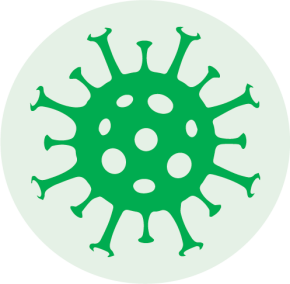

EDCTP portfolio: Emerging diseases
index


The Profile-Cov project is tracking immune responses to SARS-CoV-2 in Ethiopia, and evaluating diagnostic tools suitable for use in sub-Saharan Africa.
Mapping immune responses to SARS-CoV-2 in Ethiopia

Effective immune responses are important for protection against SARS-CoV-2 but, paradoxically, over-activation of the immune system can itself cause serious damage to the lungs. Understanding immune responses to the virus is therefore essential. Moreover, it is possible that extensive past exposure to infections may affect the response of people in Africa to SARS-CoV-2, potentially making them less susceptible to severe disease.
Understanding immune responses has important implications for diagnosis and monitoring of infections. There is a need to identify immune markers that most reliably predict the likely course of illness, risk of deterioration and infectivity. In addition, as the molecular tools generally used to detect SARS-CoV-2 require specialist facilities and skills, affordable and easier-to-use diagnostics are required to expand testing capacity in sub-Saharan Africa.
The challenge

The evolution of immune responses during the course of a SARS-CoV-2 infection is not yet well understood, and few data are available from African populations. The Profile-Cov project is recruiting a cohort of COVID-19 patients in Ethiopia and undertaking a detailed study of the dynamics of immune responses, comparing results with those from a cohort recruited in the UK. The Profile-Cov team has previously discovered that immune responses in healthy people in Ethiopia differ markedly from those seen in other populations – probably due to differing environmental exposures, rather than genetic differences.
Given limited capacity for molecular testing in Ethiopia (and in sub-Saharan Africa more generally), diagnosis is likely to depend on rapid point-of-care diagnostic tests. Although many are now available, they vary significantly in their sensitivity and specificity, and it is unclear which would be most appropriate to use in sub-Saharan Africa. Moreover, different tests may be needed at different stages – for example, to detect initial infections, to monitor response to treatment, and to confirm cure.
The Profile-Cov project will assess the performance of promising diagnostic tests identified in a large-scale global evaluation being coordinated by the Foundation for Innovative Diagnostics (FIND). These will include both antigen tests (which detect viral proteins) and antibody tests (which detect SARS-CoV-2-specific antibodies). The results from the rapid diagnostics will be compared with those from ‘gold standard’ molecular testing.
The project

The Profile-Cov project will shed light on the dynamics of immune responses to SARS-CoV-2 in an African population, as well as their associations with clinical outcomes. This information will inform key areas such as vaccine design and use of treatments that target the immune system. It will also be vital for interpreting the results of complementary studies on rapid diagnostics, helping to identify which tests would be most appropriate to use for diagnosis, monitoring of patients, and screening of populations in sub-Saharan Africa.
Impact


“
test the safety and efficacy of this new formulation in young children
”
Bringing antiretroviral drugs to children

The CHAPAS trials have ensured that many more children with HIV have benefited
from life-saving antiretrovirals.
EDCTP portfolio: HIV & HIV-associated infections
The challenge
Effective immune responses are important for protection against SARS-CoV-2 but, paradoxically, over-activation of the immune system can itself cause serious damage to the lungs. Understanding immune responses to the virus is therefore essential. Moreover, it is possible that extensive past exposure to infections may affect the response of people in Africa to SARS-CoV-2, potentially making them less susceptible to severe disease.
Understanding immune responses has important implications for diagnosis and monitoring of infections. There is a need to identify immune markers that most reliably predict the likely course of illness, risk of deterioration and infectivity. In addition, as the molecular tools generally used to detect SARS-CoV-2 require specialist facilities and skills, affordable and easier-to-use diagnostics are required to expand testing capacity in sub-Saharan Africa.

The evolution of immune responses during the course of a SARS-CoV-2 infection is not yet well understood, and few data are available from African populations. The Profile-Cov project is recruiting a cohort of COVID-19 patients in Ethiopia and undertaking a detailed study of the dynamics of immune responses, comparing results with those from a cohort recruited in the UK. The Profile-Cov team has previously discovered that immune responses in healthy people in Ethiopia differ markedly from those seen in other populations – probably due to differing environmental exposures, rather than genetic differences.
Given limited capacity for molecular testing in Ethiopia (and in sub-Saharan Africa more generally), diagnosis is likely to depend on rapid point-of-care diagnostic tests. Although many are now available, they vary significantly in their sensitivity and specificity, and it is unclear which would be most appropriate to use in sub-Saharan Africa. Moreover, different tests may be needed at different stages – for example, to detect initial infections, to monitor response to treatment, and to confirm cure.
The Profile-Cov project will assess the performance of promising diagnostic tests identified in a large-scale global evaluation being coordinated by the Foundation for Innovative Diagnostics (FIND). These will include both antigen tests (which detect viral proteins) and antibody tests (which detect SARS-CoV-2-specific antibodies). The results from the rapid diagnostics will be compared with those from ‘gold standard’ molecular testing.
The project
The later CHAPAS-3 trial compared the efficacy and safety of three fixed-dose combinations including two without stavudine (found to have some long-term side effects in adults, leading to a recommendation that its use be discontinued in children). The trial the first of its kind in Africa studied nearly 500 children at four sites in two African countries.
The Profile-Cov project will shed light on the dynamics of immune responses to SARS-CoV-2 in an African population, as well as their associations with clinical outcomes. This information will inform key areas such as vaccine design and use of treatments that target the immune system. It will also be vital for interpreting the results of complementary studies on rapid diagnostics, helping to identify which tests would be most appropriate to use for diagnosis, monitoring of patients, and screening of populations in sub-Saharan Africa.
ratios forfixed-dose combinations and on appropriatedosage according to weight.
The CHAPAS-3 trial confirmed the effectiveness of fixed-dose combinations, providing further impetus to the rollout of antiretrovirals to children. Its evidence on abacavir informed the WHO recommendation of abacavir-containing combinations for first-line therapy in children. Trial data have also been used to support applications for regulatory approval for new scored efavirenz tablets.
Impact
L’homme RF et al. Nevirapine, stavudine and lamivudine pharmacokinetics in African children on paediatric fixed-dose combination tablets. AIDS. 2008;22(5):557–65.
Mulenga V et al. Abacavir, zidovudine, or stavudine as paediatric tablets for African HIVinfected children (CHAPAS-3): an open-label, parallel-group, randomised controlled trial. Lancet Infect Dis. 2016;16(2):169–79.
WHO. Guidelines on the use of antiretroviral drugs for treating and preventing HIV infection: recommendations for a public health approach. 2010.
WHO. Consolidated guidelines on the use of antiretroviral drugs
for treating and preventing
HIV infection: Recommendations for a public health approach
(second edition). 2016
Projects: Children with HIV in Africa Pharmacokinetics and Adherence of Simple Antiretroviral Regimens (CHAPAS): CHAPAS-1 and -3
Project lead: Professor Chifumbe Chintu, University Teaching Hospital, Zambia (CHAPAS-1); Dr Veronica Mulenga, University Teaching Hospital, Zambia (CHAPAS-3)
Target population(s): Children with HIV
Sample size: 71 (CHAPAS-1); 480 (CHAPAS-3)
Countries involved: Ireland, the Netherlands, the UK, the USA, Zambia (CHAPAS-1); Uganda, Zambia (CHAPAS-3)
Project duration: 2005–2009 (CHAPAS-1); 2010 –2011 (CHAPAS-3)
EDCTP funding: €1.2M (CHAPAS-1); €4.6M (CHAPAS-3)
Total project funding: €1.2M (CHAPAS-1); €5.0M